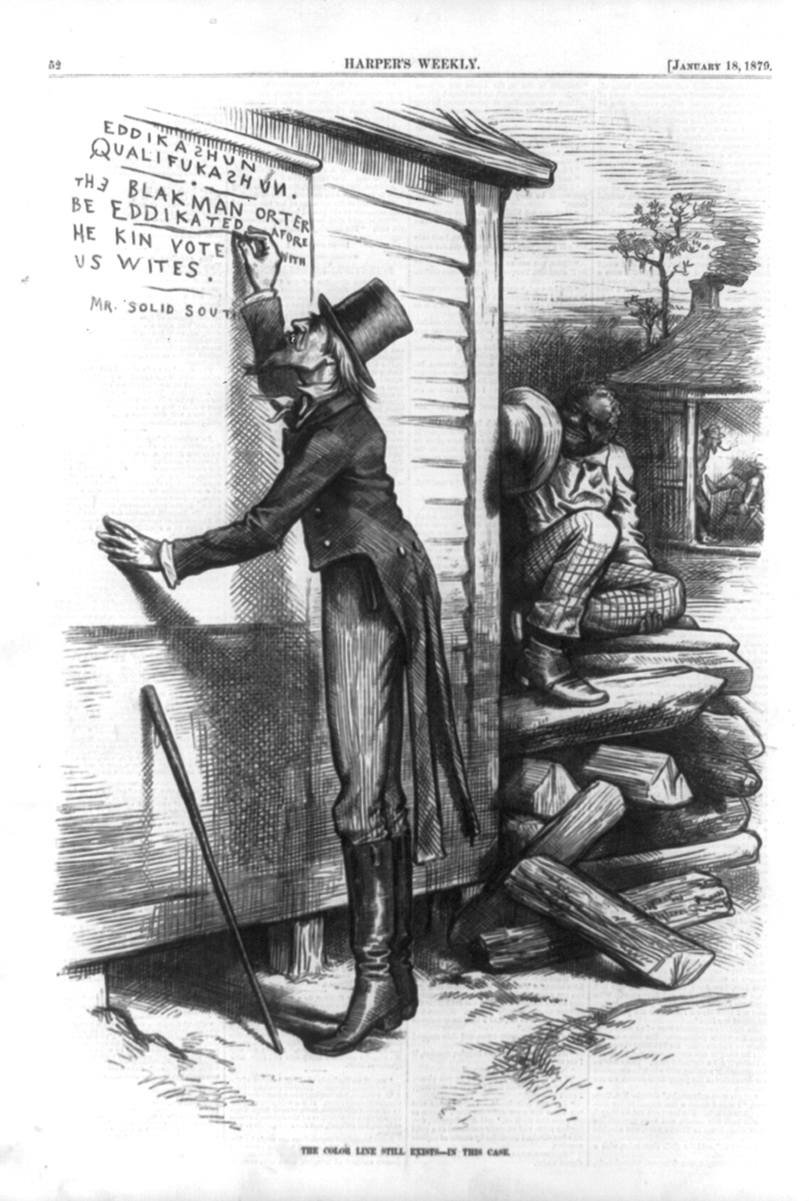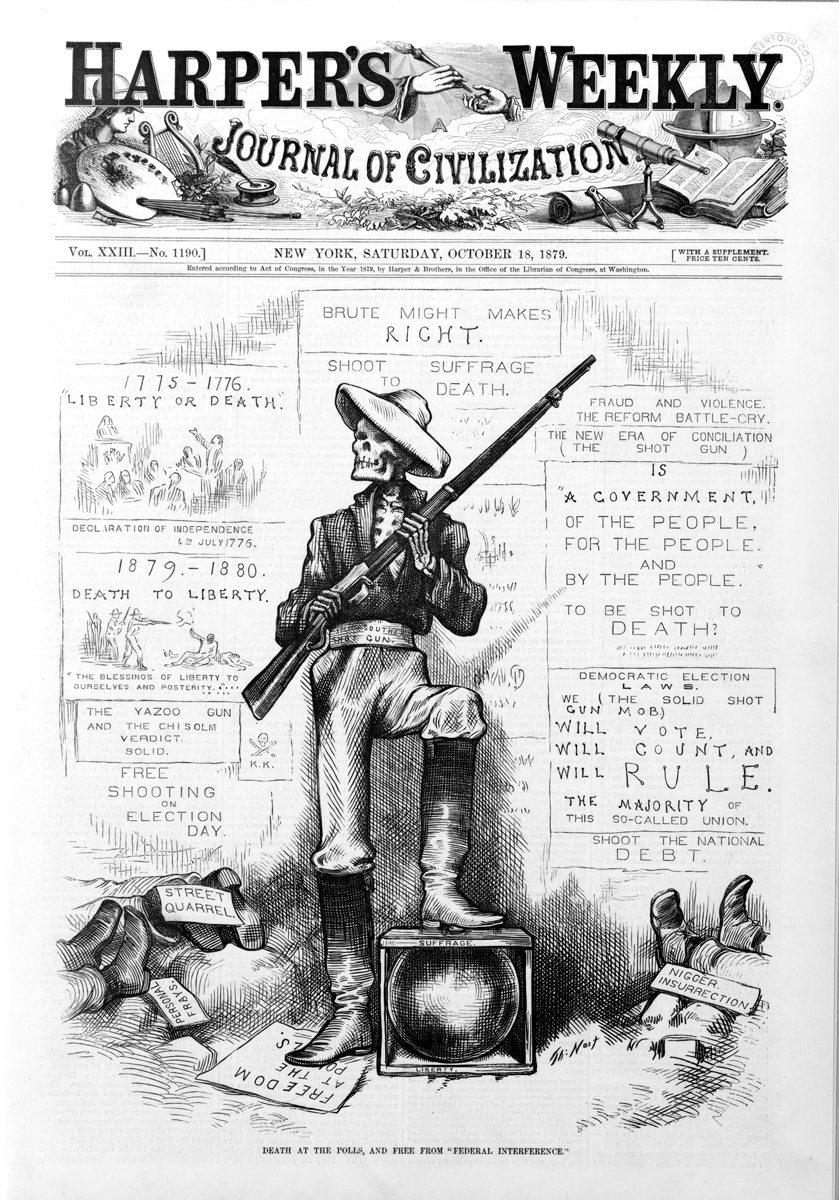Did the 15th Amendment Change Anything?
︎Content Warning: Racial violence and racial slurs
 Political cartoonist Thomas Nast recognized the education qualifications being imposed by state governments to circumvent the 15th Amendment’s provision against denying the vote based on race. Courtesy of the Library of Congress.
Political cartoonist Thomas Nast recognized the education qualifications being imposed by state governments to circumvent the 15th Amendment’s provision against denying the vote based on race. Courtesy of the Library of Congress.  Harper’s Weekly recognized that murderous violence had worked to prevent Black people from voting in the south just nine years after the 15th Amendment. Courtesy of the Library of Congress.
Harper’s Weekly recognized that murderous violence had worked to prevent Black people from voting in the south just nine years after the 15th Amendment. Courtesy of the Library of Congress.
Southern states began disenfranchising Black men using non-racial means--slowly, at first, and then with greater confidence toward the end of the 19th Century. First, states took away the right to vote from convicted felons, increased the number of felony laws, and proceeded to arrest Black people in disproportionate numbers under those new laws, effectively disenfranchising great swaths of the population.
States passed poll taxes that required payment in amounts that few cash-poor Black families could afford.
Violence and murder at polling places continued unabated after the 15th Amendment becasue White operators did not fear conviction from sympathetic juries. In 1890, the state of Mississippi passed a new constitution that instituted a series of poll taxes, literacy tests, and a grandfather clause, in which a man could vote if his grandfather (presumably a White man before emancipation who had been eligible to vote) could have voted. When the United States Supreme Court upheld a challenge in Williams v. Mississippi (1898) it effectively disenfranchised most of the state’s Black men without specifically mentioning race. Most other southern states rushed to rewrite their constitutions with similar provisions.
By the dawn of the 20th Century, and despite the 15th Amendment, the former Confederate states had effectively deprived their Black citizens of the right to vote.
States passed poll taxes that required payment in amounts that few cash-poor Black families could afford.
Violence and murder at polling places continued unabated after the 15th Amendment becasue White operators did not fear conviction from sympathetic juries. In 1890, the state of Mississippi passed a new constitution that instituted a series of poll taxes, literacy tests, and a grandfather clause, in which a man could vote if his grandfather (presumably a White man before emancipation who had been eligible to vote) could have voted. When the United States Supreme Court upheld a challenge in Williams v. Mississippi (1898) it effectively disenfranchised most of the state’s Black men without specifically mentioning race. Most other southern states rushed to rewrite their constitutions with similar provisions.
By the dawn of the 20th Century, and despite the 15th Amendment, the former Confederate states had effectively deprived their Black citizens of the right to vote.
